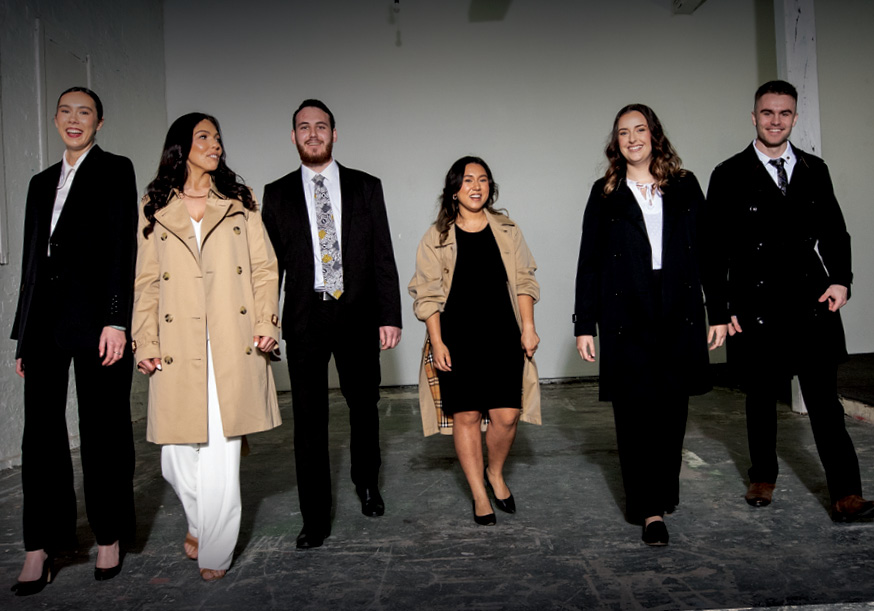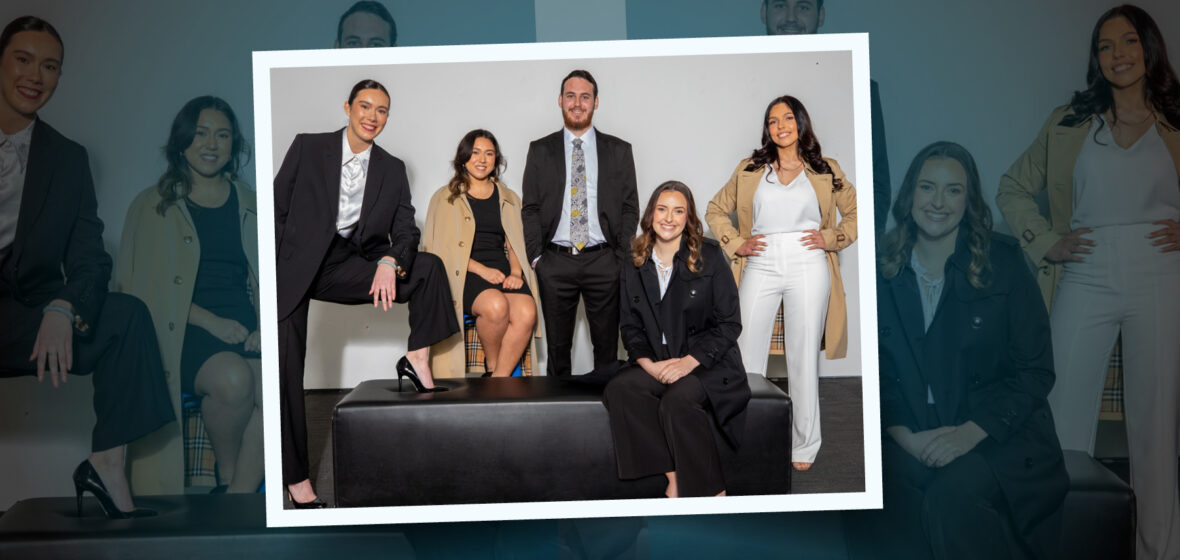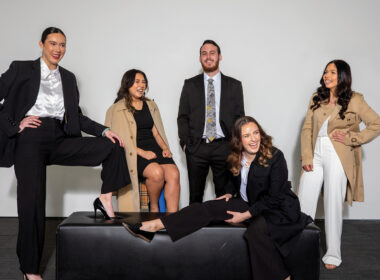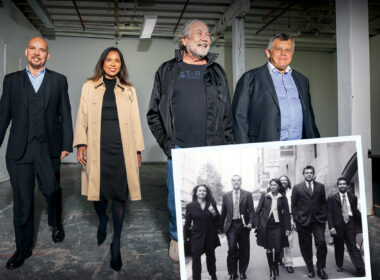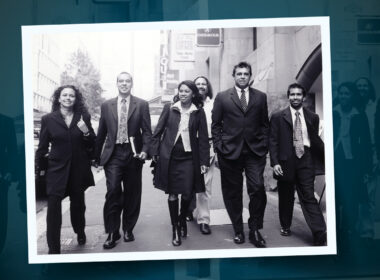Amanda Morgan, Kyle Fox, Jess Oehm, Karla Jeffrey and Irene Higgins are five Indigenous law students and recent graduates committed to making change through the legal profession. While they agree that their path into law is very different now from the one that other deadly legal professionals had to follow before them, in other ways, it’s very much the same.
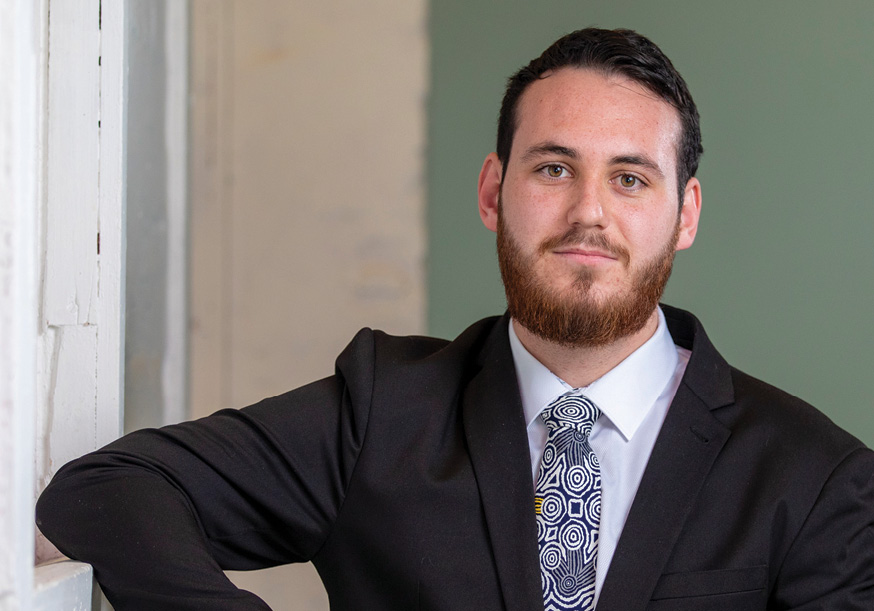
Kyle Fox
Third-year student in Bachelor of Law/Criminology and Criminal Justice at UNSW
“ I am a proud Wiradjuri man. I’m primarily working as a cadet at the Public Defender’s Office. Some of my work consists of looking over briefs of evidence, summarising witness statements and identifying plausible defences. I also do legal research, locating and consolidating important information on the fact in issue in the trial or the elements of the offence for which the accused has been charged.
Reflecting on my studies and my work, I have seen that our mob remains disadvantaged by the criminal justice system and targeted throughout the system.
I am keen on amplifying and voicing the Indigenous perspective and ensuring that all people, particularly Indigenous Australians, are offered the right to a fair trial.
In any discussion relating to criminal justice issues, I believe it is vitally important to think critically about various factors, some of which include racialised policing practises and the continuing impacts and process of colonisation, as well as the social conditions which may give rise to alleged offending – as opposed to looking solely at the objective seriousness of an alleged offence.
I’m really passionate about asking these questions, and finding the answers: Why did this incident happen? How can we create new and culturally appropriate programs to address these issues? How can we effectively introduce these programs? In my view, that certainly starts with empowering Indigenous communities, particularly Elders, and placing them in positions of decision-making power.
The best advice I would give to younger First Nations students looking for a profession in the law is to remain consistent and passionate. Never forget why you’re studying law. For me, the reason is that it allows me to give back to my community and improve the position of Indigenous Australians in the criminal justice system.
During your time at university you will learn new and exciting skills, and be provided with opportunities to reach out and assist your mob. Take them. Connect with like-minded individuals who are also passionate about seeking and delivering justice in different areas of law. ”
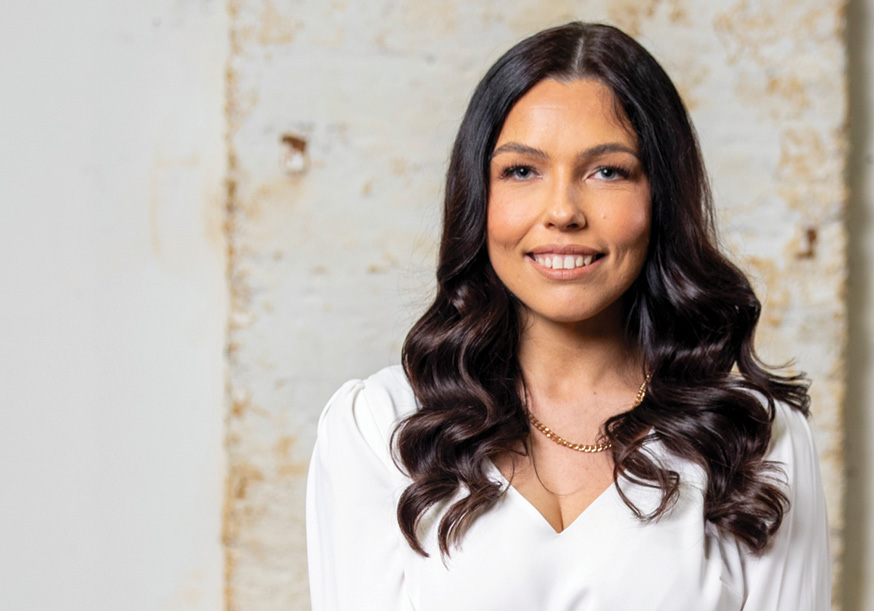
Amanda Morgan
Studying BA Psychology and LLB at Macquarie University
“I am a Yorta Yorta grassroots female activist pounding the pavement, holding my card and shouting through a megaphone.
Last year, when I started working at Lifeline for a psychology placement, I came across trauma-informed care. I realised that, though people are assumed to be equipped to serve and to assist clients with complex trauma, there’s a massive gap in our legal training, and across the legal landscape. There need to be more Indigenous advocates and voices in the space.
I am currently working on making great change in the area of gender-based violence and racism within many institutions. I have conducted several interviews and made public speeches, and my focus is on activism.
I’m part of @MakeaSeatAustralia. This organisation is a culturally safe, trauma-informed media platform for historically underserved survivors. I want to create new, innovative ways to manage this state of affairs in a way that’s actually going to inform policy, inform community and culture, and address stigma and change attitudes.
I want to take away all the excuses about why white folks don’t pass the mic. I also want to be part of programs that make the ATAR irrelevant, so you’re not assessing someone based on a specific skill set, and are inclusive of neurodiversity.
A project I am working on is preparing to give 200 Aboriginal Torres Strait Islander people over four years’ fulltime work experience in the near future. It means they can gain their LLB without ever having to worry about the ATAR.
We need to see people who are like us, who look like us, who’ve got our similar experiences. Mine are lofty, ambitious goals, I know, but I want to bring all mob up with me. I want everyone’s energy to be infectious. Be your own hype person, and be a hype person for everyone else.
Although some may see me as over-ambitious, I would say to a younger Indigenous person: never think that your dreams are too big. Never think they’re not worthy.
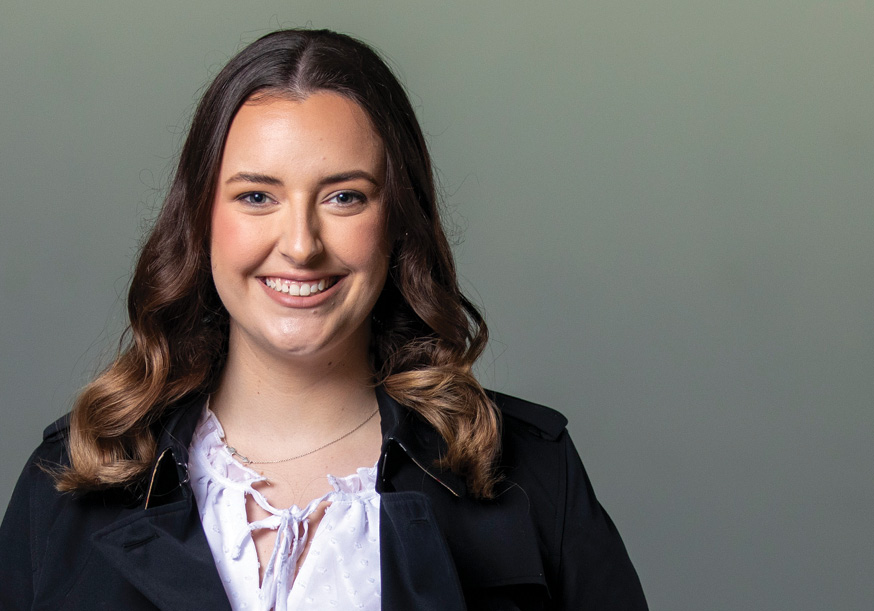
Jess Oehm
Studying Bachelor of Laws and Bachelor of Business, majoring in HR management
“ A proud Ngunnawal woman from Yass, I was born in Dharug country in Penrith. My first year of study was the toughest. I had no assistance from my family academically because I’m the first person in my family to go to university. But as a competitive dancer I’ve developed pride in being presentable, as well as strong time management and organisational skills. And I’ve been inspired by the academic world. I’m currently studying law at Western Sydney University (WSU) and working in Gilbert + Tobin’s property and management program. My goal is to practise in employment law and be as inspirational as my Dean, Professor Anna Cody.
The path for my future has been set by the perspective that my community really needs somebody in their corner to bat for them. We need to get more Indigenous people into jobs that pay well, with good work conditions, so we’ll see the disproportionate criminal rates in society significantly reduced.
One of my teachers told me I should drop out, which was a driving force: stubbornly passionate, I ignored this. From the start, I’ve been driven to assist clients with legal problems in their earliest hour of need. I love a good argument and an opinionated yarn, and I remind myself that this is what encouraged me to take up law and follow the legal profession. Now I’m near successfully completing my LLB.
My hard work, drive and passion have contributed, but I attribute my success in my studies so far to the Pathways to Dreaming program and other supports at WSU: the Badanami Centre and student support officers Kristy Bell and Josh Mason.
As a proud Indigenous woman, I note that our emotional intelligence is paramount within the legal profession as we are the minority in this sector: the daunting entry ATAR makes the system quite biased.
Despite the odds stacked against Aboriginal students, including our cultural background, I can proudly say that studying law is achievable if you work hard, and also seek and find the right support networks.
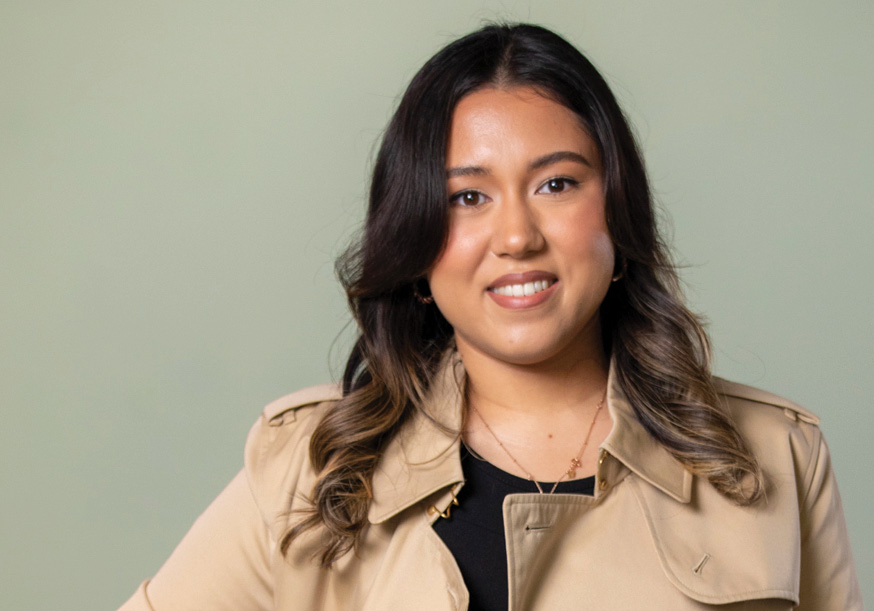
Irene Higgins
Recently completed B Science/Laws, majoring in Psychology, at the University of Sydney
“I’m a proud Wiradjuri woman, living, studying and working on Gadigal land, born and raised in south-east Queensland.
I moved to Sydney to study law when I was 17. My main goal then was to effect change. Now, I want to use the tools from my degree to bring about positive change for Aboriginal and Torres Strait Islander communities.
I began working in law in my first year of university, through the CareerTrackers program. This was a great opportunity, giving me exposure to personal injury, insurance, employment and commercial law. My advisors also provided me with a lot of support during my degree.
I was the only Indigenous student I knew in my first year of Sydney Law School; maintaining strong cultural ties and identity in my legal education and work space was something I had to wrestle with for a while. My dad is always telling me, “We stand on the shoulders of our ancestors.” This responsibility I feel to give back to my community, and to be proud of my culture, is what has motivated me through law school.
At the University of Sydney, I had the opportunity to work with Aboriginal and Torres Strait Islander high school kids through the Widening Participation and Outreach program. It is clear to me they’re all very bright and capable, but have a lot stacked up against them. Helping others break through into these institutions is something I’m strongly passionate about.
At work I specialise in institutional abuse, which has given me the opportunity to help people in my community and taught me to question the systems we’ve been put through as Aboriginal people, to really think about why they are set up the way they are, and whether they should be set up that way. In the future, I want to make sure that the compensation model for our mob progresses further than it already has. We need to start by listening to those who’ve gone through the system so it can be improved.
To bring about changes for Indigenous people through the law, it’s im-portant to approach these issues head-on, with kindness and positivity. ” I’ve been passed down stories of optimism and strength by my family and by community, and it’s something that I hope to carry with me and share with others in my future legal career.
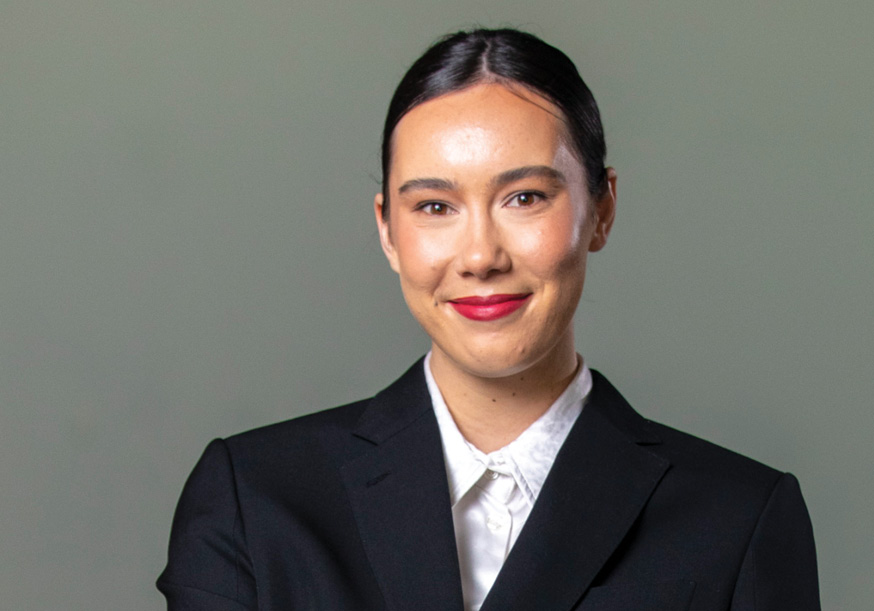
Karla Jeffrey
Recently completed B Art Theory and JD
“I grew up in Tamworth, and am a proud Kamilaroi woman. All of my family are still back in Tamworth – I try to go back and see them whenever I can.
I’m the first person in my family to go to university. I knew about the law and always had an interest in it, but I always thought, oh, that’s not for me. There’s no way I’m smart enough to do that.
In the final year of my Art Theory degree, I did an Indigenous art course and loved it. I learned about intellectual property (IP), and how Indigenous people and their IP rights aren’t thoroughly protected. This set me on my law journey.
Since I’ve started studying law, I’ve also been working. Fulltime as a paralegal and studying law fulltime means a lot of conflicting priorities, and it’s a constant balancing act. It’s been difficult, but very rewarding.
My journey to where I am today started before I even began studying law. In 2018 I was working in the recruitment team at Jones Lang LaSalle, a property firm, doing reference checking. Word got out that I was about to start studying a law degree and this, combined with the fact that the COO worked near me and heard how I communicated with people on the phone, led to an offer of a paralegal position in the in-house legal team. The team’s head, Kathryn Degotardi, became an inspiration.
Later I applied for the Indigenous Cadetship at Gilbert +Tobin (G+T) and am currently working as a paralegal in the Corporate Advisory team before starting as a graduate with the firm next year. Louise Buckingham, my first G+T mentor, has been a major role model, as has Terri Janke, who inspired my interest in Indigenous cultural and intellectual property. I’d like to look back one day and know I’ve made a change in that space.
Here’s my advice to First Nations People considering studying law: just do it. It’s hard. But once you get to the end, it’s very rewarding. We do belong, and we do deserve to be here.
